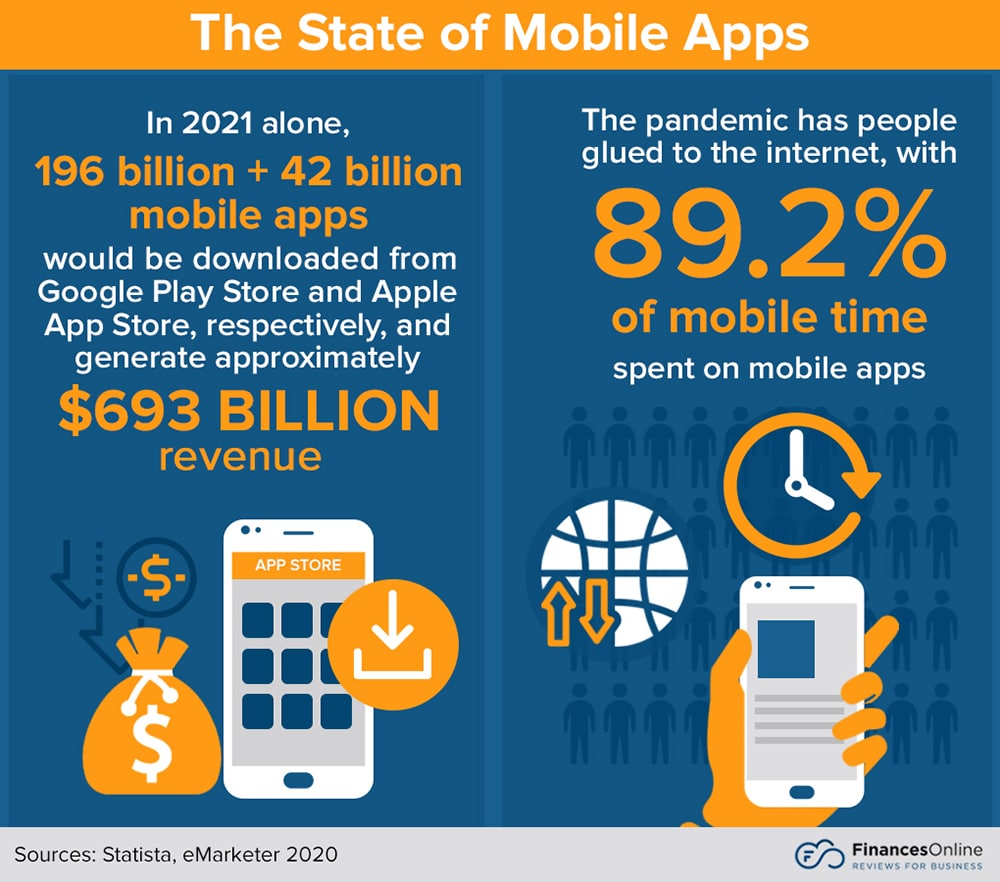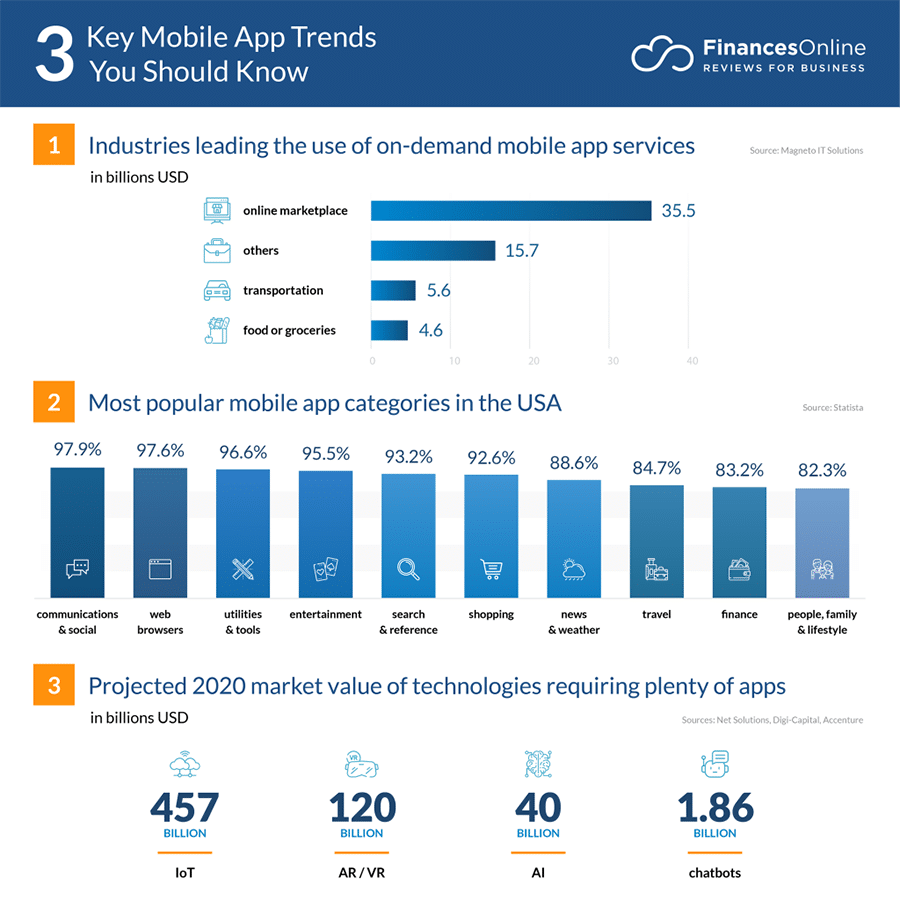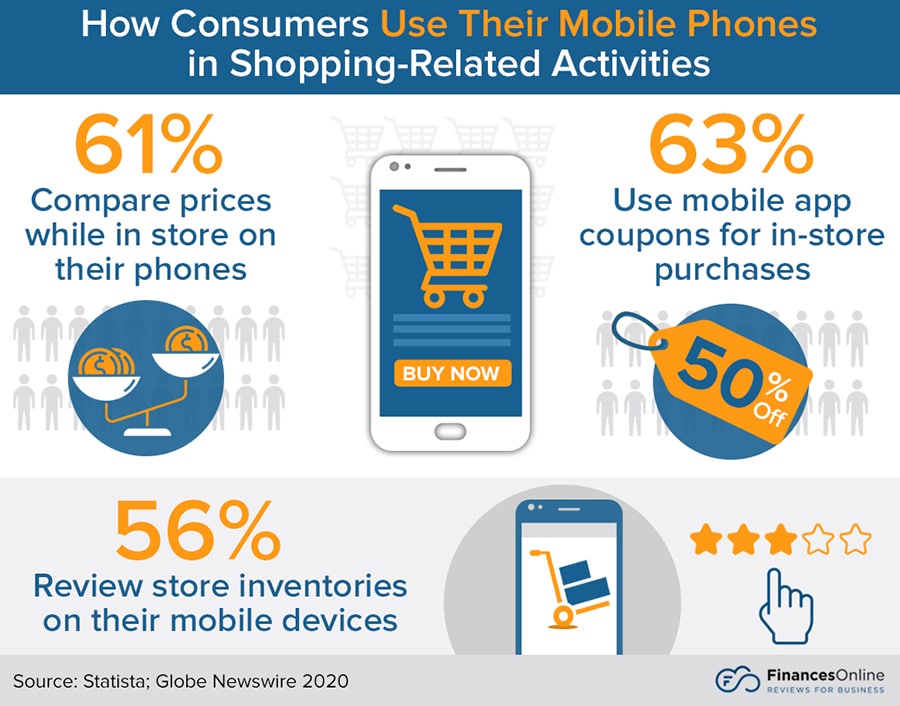According to Statista, e-commerce brings in $5.7 trillion in sales and is projected to grow to $8.1 trillion by 2026. Additionally, the majority of these e-commerce sales are happening on mobile devices. If these statistics alone aren’t enough to motivate you to consider a mobile app, here are 7 more reasons every business needs a mobile app.
Communication
With a mobile application, you can contact your customers through the app and with notifications directly. Instant access to consumers can help decrease marketing expenses since you don’t have to rely on paying for ads but instead can directly access consumers through push notifications.
It can also increase sales as businesses can directly communicate with their clients through the app to share special deals, incentives, price reductions, and “items left in cart” reminders which can ultimately increase the number of orders and the amount of the cart value.
Communication can also be improved through chatbots. Chatbots on mobile devices allow consumers to get their important questions answered quickly, which can help them make buying decisions and ultimately buy. Business save time and money because customers get the support they need without needing a paid employee. This industry is expected to grow by nearly 400% in the next 4 years, so if your business wants to be at the forefront of customer service, this is a great place to focus.

Personalization Using Predictive Analytics
With the rise of big data and predictive analytics, apps have tremendous data collection and prediction power. While data can be used to make strategic business decisions, it also provides personalization and a quality user experience. A major trend is using user data to deliver personalized experiences to each user.
For example, e-commerce apps recommend items a consumer may like based on previous shopping data. Consumers are no longer surprised by these recommendations appearing based on their shopping habits, and now expect a more personalized experience through an app.
Customer Experience
With a mobile app, you can create a unique user experience. For example, you can use machine learning, artificial intelligence, and even VR technologies to understand your customer’s likes and dislikes and recommend products you know they are likely to enjoy. This customization can create a better customer buying experience, save them time, and help your bottom line.
Additionally, customer experience can be improved because mobile apps can include important communication features such as support, return processing, and even shipping updates. In our modern world, people expect easy and nearly instant communication, and mobile apps can help provide this.
However, ensuring a quality user experience is important by always keeping the consumer in mind while developing apps. First of all, remember that mobile phones have small screens, and consumers prefer app designs that are simple and minimalistic.
To make apps enjoyable for users, high-quality and easy-to-read fonts and eye-pleasing colors and images should be used. In other words, keep it simple.
Conversion Rates
Mobile apps can drastically increase conversion rates for products. First of all, push notifications can remind users of items they forgot to purchase while browsing or recommend new products they might enjoy. Next, conversion rates are often higher because payment details are saved, reducing buyers’ friction and making the buying process smoother.
Finally, mobile apps can also integrate mobile wallet apps giving users additional payment options and can make checking out an easy one-step process.
Time Savings
Customers demand quick and easy processes from businesses. Mobile apps can provide time savings to consumers because they are known for loading 1.5 times faster than e-commerce websites. Additionally, people move quickly and aren’t always sitting at a computer while online shopping. People prefer to save time by browsing at various moments in their life, like while watching TV or waiting on hold or in line.
Mobile apps allow users a better experience that allows them to save time and order the products they want and need at the drop of a hat. Because buyers can conveniently shop 24/7 on mobile apps, businesses can increase their profits.

Brand Recognition
A mobile app on a consumer’s phone is a great way to improve brand recognition. People use their phones daily, and seeing your app on their phones will automatically increase their brand recognition. One important caveat is that brands need to make sure their mobile app is user-friendly because users have been known to delete brand apps from their phones when they find them difficult to use. Businesses should keep the user experience as a top priority in order to not harm their brand with a mobile app and make sure they keep the fact that a mobile device is small in mind when designing their app.

Access to Data
With a mobile app, you can track more information about your clients. Access to client data can help make predictions about groups of people and customer preferences. Furthermore, data can be leveraged to inform supply chains, consumer preferences, and overall business strategy to help decrease costs and increase a business’s bottom line.
The Bottom Line
To compete in the fast-paced and competitive e-commerce space, businesses must ensure their processes are modernized and can produce an optimum user experience. Mobile apps are a great way for businesses to do just that.


